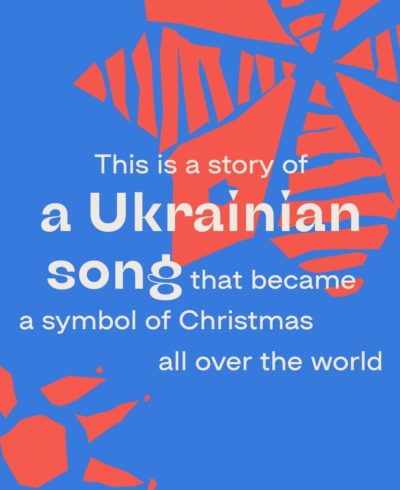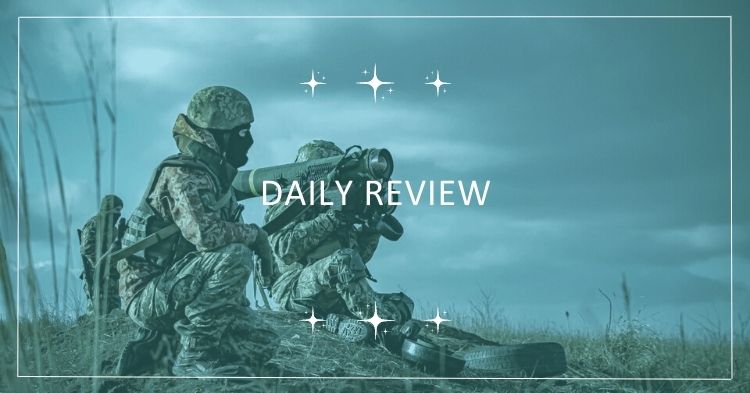Quick fire
- For the first time in many weeks/months/years, JFO report no attacks by Russian-led militants.
- As of 19:30 Dec 21, OSCE SMM recorded 564 violations, incl 74 explosions in Donetsk Obl; 49 violations, incl 42 explosions in Luhansk Obl.
- Russian-led militants deny OSCE SMM passage at Zolote, and delayed passage at Stanytsis Luhanska, Luhansk Obl.
- "Foreign Minister" of so-called "Donetsk People’s Republic (DNR)" Natalia Nikonorova proposed to temporarily open all checkpoints without restrictions from December 30 to January 10.
- Special Representative of OSCE in Ukraine & in Trilateral Contact Group (TCG), Ambassador Mikko Kinnunen: "...in meeting of Trilateral Contact Group, with the participation of representatives of certain areas of Donetsk and Luhansk regions of Ukraine, priority was given to the issue of security and, in particular, compliance with the ceasefire. I was delighted that participants expressed their strong determination to fully adhere to the Measures to Strengthen the Ceasefire agreement of 22 July 2020."
First test of Javelins in Donbas shows Russian tank mods don't protect against these missiles
Ukrainian soldiers conducted firing exercises using Javelin anti-tank missile systems in JFO area. This was the first firing exercise for the Ukrainian soldiers. In this first test, Ukraine found that the makeshift anti-Javelin mods recently sported by Russian tanks are useless against the anti-tank guided missiles (photos, videos).
58% Ukrainians support joining EU, 54% in favor of NATO, IRI Ukraine poll shows
The majority of Ukrainians support the country’s accession to the EU and NATO, according to the results of a survey commissioned by the American nonpartisan nonprofit International Republican Institute.

NATO less sure that Russia will invade Ukraine
Ukraine's ambassador to NATO Nataliya Galibarenko says the Alliance now thinks a Russian invasion of Ukraine is less likely. Now the idea that Russia's real goal is to raise the stakes in a political dialogue is more widespread. "Russia sought direct contact with Biden, and it got it," she said in an interview with European Pravda. In the same interview, she says it's unlikely that NATO will make any decisions about Ukraine at its summit at the end of June 2022, and that reforms, particularly anti-corruption reforms, are able to change the skeptical attitude of some NATO members towards Ukraine.
Preparations for negotiations with Russia
The United States is ready for talks with Russia in January. This was stated by a high-ranking official of the administration of US President Joseph Biden, Reuters reported. The exact date or place of the talks has not yet been determined. Washington will fully respond to Moscow's proposals for so-called "security guarantees" in next month's talks, the official added.
However, Russian President Vladimir Putin has already announced such talks in Geneva at his annual press conference. According to him, the relevant representatives from Russia and the United States have been appointed.
NATO is also ready for a "meaningful dialogue" with Russia, according to a call between Secretary Blinken and with NATO Secretary General Jens Stoltenberg.
The European Union insists that its interests must be represented in possible negotiations with Russia on security issues in Europe, High Representative of the EU for Foreign Affairs and Security Policy Josep Borrell Fontelles said in a published statement, responding to Russia's draft treaties on the European security architecture.
"Any real discussion on security in Europe must build on and strengthen OSCE and UN commitments and obligations - true pillars of the European security architecture - and not lead to their erosion. Such a discussion must be inclusive and must take into account the concerns and interests of all stakeholders. The EU will engage with both the US and NATO to ensure its interests are represented in any possible discussion with Russia on European security.
NATO’s offer to hold a NATO-Russia Council in response to the draft treaties on European security that Russia rendered public last week is an important step. NATO has a key role in guaranteeing peace in Europe. The EU is keen to work together with allies as well as with its partners in addressing today’s security situation in our continent," Borrell wrote.
Regarding the announced NATO-Russia Council, Stoltenberg detailed in an interview with the German news agency DPA that NATO is ready to negotiate in view of the Kremlin's demands for additional security guarantees from NATO, but rejected the idea that NATO could, for example, not accept Ukraine.
"We are ready to sit down with Russia in the NATO-Russia Council (NRC) and we are ready to talk. That is why I intend to call a meeting of the NRC as soon as possible in the New Year. But we will not compromise on core principles. We can't compromise on NATO's right to protect and defend all allies, and we cannot compromise on the core principle of every nation's right to choose its own path. This is about respecting the sovereignty of also smaller nations. The whole idea that a big power like Russia can decide what smaller neighbours can or cannot do is to reintroduce this idea of spheres of influence, which is absolutely against everything that has ensured peace and stability in Europe since the end of the Cold War," Stoltenberg said.
As reported, on December 17, the Russian Foreign Ministry published a wish list of security guarantees on the distribution of spheres of influence in Europe, which Moscow wants to sign with NATO and the United States. In one point, Russia invites NATO countries to commit themselves to "excluding further NATO enlargement, including the accession of Ukraine and other states."
Putin reiterates myth that NATO promised not to expand, gives no guarantees of non-invasion at press conference
Russian President Vladimir Putin has offered no guarantees that Russia would not invade Ukraine and drew a parallel line between the temporary occupation of Crimea by Russia and the US "territorial issues" with its neighbors at his annual press conference.
“Our actions will not depend on the course of the negotiations, but on whether Russia's security is unconditionally ensured, today and in the historical perspective. We have spoken loud and clear that NATO's further eastward expansion is unacceptable. What can’t be understood here? Are we deploying missiles near the borders of the United States? No. It was the United States with its missiles that came to our house, they are already on the threshold of our home,” Putin said.
Putin claimed at the press conference that NATO had "deceived" Russia with successive waves of enlargement since the Cold War and said that Moscow urgently needed a response. The Russian leader called for guarantees of non-enlargement of NATO, "and immediately - now."
In the interview with DPA, NATO Secretary General Jens Stoltenberg debunked this myth, saying that
"NATO has never made the promise to not enlarge. Actually, it is in the founding treaty of our organization that any European country can become a member of the alliance. Second, there are documents dating back from the 70s, the 90s - the Helsinki Final Act, the Paris Charter, the NATO-Russia founding act and many other treaties – which make clear that countries have the right to choose their own path. This is a fundamental principle of European security, and one that Russia has also subscribed to. That's not something that we can change through some quotes. And allies strongly deny that they ever promised anything like that. Former President Gorbachev himself said the subject of NATO enlargement never came up ahead of German reunification."
Christmas ceasefire in Donbas
The Ukrainian delegation to the Trilateral Contact Group (Ukraine, Russia, and the OSCE) said that at the latest meeting the parties reached a common understanding on the need to restore ceasefire in the zone of hostilities. No ceasefire violations were recorded on its first day, 22 December.
Belarus declares RFE/RL an extremist organization
Belarus's Interior Ministry has added RFE/RL's Belarus Service
, known locally as Radio Svaboda, to its registry of extremist organizations, in a continued clampdown on independent media and civil society sparked by an eruption of protests against authoritarian ruler Alyaksandr Lukashenka's claim he won a presidential election last year that the opposition says was rigged.
How Russia and China are resurrecting the Cold War with Covid disinformation
92% of COVID19 disinformation is produced by Russia & China. But the two countries are not merely seeking to destabilize societies. Here is now they are using the pandemic as another occasion to undermine liberal democracy and ressurect the Cold War.
How Russia and China are resurrecting the Cold War with Covid disinformation
How the EU can resolve the Belarus migrant crisis in three steps
Over the course of 2021, the European Union has been pressed by a variety of issues ranging from the coronavirus pandemic and an economic recession to a continental gas shortage and the Russia-Ukraine conflict. The EU is also struggling to address the ongoing Belarus migrant crisis orchestrated by the authorities. How did the migrant emergency on the Belarus-Poland border start? And what can the EU do to protect the rights of these refugees?
Ukraine enters holiday season with anti-corruption reforms in danger
As Ukrainians prepare for the festive holiday season, the country’s reform agenda is in grave danger after a designated selection panel refused to approve the appointment of the country’s chief anti-corruption prosecutor. This December 21 setback leaves a key Ukrainian anti-corruption institution, the Special Anti-corruption Prosecutor’s Office (SAPO), without independent leadership and places the country’s entire anti-corruption drive in doubt.
Carol of the Bells and cultural diplomacy revisited
Ukraine's official website has prepared a magnificent story about the Ukrainian origins of Carol of the Bells, a Ukrainian folk song arranged by Mykola Leontovych that is now truly a global phenomenon.

Leontovych's "Schedryk," more known as "Carol of the bells," is one of the most popular Christmas melodies in the world and has gotten countless covers. Check out 21 great renditions of this Ukrainian folksong.

